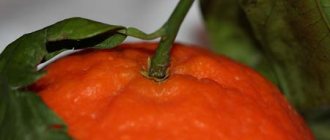Useful properties of thyme
- elimination of inflammatory processes and cough;
- removal of toxic and other harmful deposits;
- antiviral effect;
- antiseptic effect;
- pain relief during childbirth, joint diseases;
- increased blood pressure with hypotension;
- strengthening the immune system;
- neutralization of helminths;
- increased contractions during labor;
- eliminating any cough.
Thyme (thyme) is an essential oil plant, due to which it has a pronounced aroma. It is generally accepted that the use of essential oils during pregnancy is strictly prohibited. On the other hand, thyme is very useful, so in some cases it is used during pregnancy, but with great caution. In some situations, it won’t hurt to drink tea with thyme immediately before giving birth, as the herb speeds up contractions, relieves pain and increases the tone of the uterus.
Benefits of thyme during pregnancy:
- During the period of bearing a child, a woman is most susceptible to colds, and the condition is especially dangerous when there is a dry and obsessive cough. Inhalations with thyme promote mild expectoration, which is important for a pregnant woman.
- If a pregnant woman has a sore throat, you can gargle it with a decoction of thyme - the pain will subside.
- During pregnancy, skin rashes, stomatitis, gingivitis, sinusitis and other problems caused by bacterial damage are often observed. Thyme has a powerful bactericidal effect, so it can be used to rinse the nose and mouth, rinse, and apply compresses and lotions. In this case, there is no need to use synthetic-based medications.
- Thyme tea is used for mood swings, anxiety, insomnia and increased nervousness. In this case, you should not drink it often and brew it strongly (a pinch of herb or one small fresh twig is enough).
Tea with thyme, as well as cold compote with a sprig of thyme, is considered the safest during pregnancy. The fact is that in this form the concentration of toxic thymol and essential oils is small, so the harm will be minimal, but provided that the pregnant woman drinks a drink with thyme very rarely.
General information and what thyme looks like
This grass belongs to perennial plants with a thin stem that spreads along the ground. The leaves are green, small, thin, and oval in shape.
In June-July, during the flowering period, it has a strong aroma, thereby attracting many butterflies and bees.
Thyme is very popular in folk medicine due to its wide range of uses.
How to drink thyme for pregnant women
In order not to harm your body and fetus, be sure to follow special rules when taking thyme:
- Buy herbs only from a pharmacy, since pharmacological remedies are based on strict compliance with the requirements for collecting and drying the herb. If you collect raw materials yourself, then pay attention to the fact that the grass grows in ecologically clean regions, away from roads and highways. You also need to dry it correctly, carefully sorting out each leaf and stem.
- It is best to use the herb as a supplement to the green or black variety. For 1 teapot it is enough to put one sprig of thyme.
- Store dry herbs in tightly sealed glass containers.
- If you use the herb as an external remedy, be sure to follow the dosage, because in this case an allergic reaction is possible.
This video will tell you about the beneficial properties of thyme, the rules for selection and storage:
What are the benefits of thyme?
Main beneficial properties:
- Is a good stabilizer of the body's metabolic processes
- Has excellent antiseptic properties
- Good diuretic and diaphoretic effect
- Excellent expectorant
- It contains many trace elements and vitamins, especially C and B
- Effective antiviral and antibacterial agent
- Antihelminthic effect
- Increases uterine tone
- Increases blood pressure
Use of thyme during pregnancy
First trimester
During the first trimester, there is a risk of miscarriage, and thyme helps to increase the tone of the uterus and induce menstruation, so it should not be used in the early stages!
Second trimester
Thyme can have a toxic effect, affecting the kidneys and liver , so it is especially important not to consume it during this period! Only external use of the herb is allowed.
Third trimester
Since thyme accelerates contractions, it is prohibited to use it in the first 2 months of the third trimester. But the herb can be useful just before labor.
Recipes for decoctions, syrups and tea with thyme
If there are no contraindications, and the doctor has given permission to use this medicinal plant, use the following recipes:
- To brew tea, you only need a small pinch of herb per cup.
- During pregnancy, thyme can be brewed with linden (but if there are no complaints about the functioning of the heart), lingonberry leaves and cranberries (if there are no gastrointestinal diseases), with dried apples and pears.
- It is very useful to brew thyme with rose hips.
- To gargle, brew a couple of tablespoons of the herb with boiling water (200 ml). After cooling, you can use it for rinsing.
Compresses, baths
- Thyme compresses are used to treat skin rashes and irritations, as well as pain in bones and joints. Pour 2-4 tablespoons of thyme into a thermos. Pour boiling water over and let sit for at least 4 hours. Next, soak the gauze in the tincture and apply to the affected area for 15-20 minutes.
- You can make local hand baths. For 1 liter of herb you will need 50 grams of herb. Place the container on the fire and boil for 10 minutes. Let it brew for several hours in a warm place. During pregnancy, foot baths and general baths with thyme are contraindicated.
Do not forget that thyme, when applied topically, can also cause an allergic reaction. The use of thyme oil is also contraindicated.
Contraindications
The medicinal herb thyme, although it has many beneficial properties, has its own list of contraindications:
- Individual intolerance to grass.
- Diseases of the thyroid gland (decreased activity - hypothyroidism).
- Gastritis with high acidity, stomach and duodenal ulcers.
- Pathologies of the liver, kidneys.
- Arrhythmia, heart failure.
If you read the instructions for the pharmaceutical preparation (dry crushed thyme leaves), then the contraindications include pregnancy. However, here we are talking about the use of decoctions and infusions for therapeutic purposes. Meanwhile, thyme can be consumed simply as an additive to regular tea (in a small dose) to get a healthy tonic drink.
Contraindications and precautions
Direct contraindications:
- high blood pressure: if you experience surges in blood pressure, be sure to monitor it 2-3 times a day;
- diseases of the endocrine system, as well as kidneys and liver;
- threat of pregnancy failure (increased uterine tone, bleeding, nagging pain in the lower abdomen);
- ulcerative manifestations in the gastrointestinal tract;
- plant allergy;
- diabetes (including gestational).
In case of the listed problems, it is preferable to abandon thyme.
Products prepared on the basis of this herb should be contraindicated during pregnancy, but in reality you often won’t see this in the instructions. A pregnant woman should know that thyme has dangerous side effects, especially if taken for a long time or in the form of decoctions, infusions, or as part of herbal medicines.
Are there any contraindications when using thyme during pregnancy?
With the onset of pregnancy, you need to make it a rule - to use any medicines and herbs only after consulting with your doctor . Even such a wonderful herb as thyme should not be an exception.
Thyme is contraindicated for pregnant women if they have:
- High blood pressure, which under the influence of this herb slowly increases and also gradually decreases.
- Increased uterine tone
- Failures occur in the cardiovascular system, atrial fibrillation occurs
- Failures of the thyroid gland and in the presence of a hereditary predisposition to its disease
- Kidney diseases
Side effects
Nausea and allergic reactions may occur. In this regard, it is necessary to consult with both a gynecologist and a therapist about the advisability of using thyme.
Thrush - what is this disease and how to cure it
And here is about how to overcome depression during pregnancy and after childbirth
By clicking on the link you will learn how to get rid of insomnia
How to cook?
For gargling and mouthwash, instillation into the nose, prepare a decoction or infusion. In the first case, take 2 tablespoons of dry thyme, which can be bought at a pharmacy, and pour a glass of hot water. The mixture is kept in a water bath for up to a quarter of an hour, after which the resulting liquid should be cooled and filtered. The prepared decoction cannot be stored for more than a day. It is best to keep it in the refrigerator, and before the next rinse you need to warm it up slightly.
For external use and cosmetic purposes, it is better to prepare an infusion. In this case, the amount of thyme should be about 3.5 tablespoons per half liter of water. Thyme is brewed with boiling water and infused in a thermos or under a glass lid for about five hours. Then the liquid, as in the first case, should be filtered. For bathing, add it to water; for topical use, use it without dilution. The infusion should also not be stored for more than a day. If signs of a local allergic reaction (redness, itching, swelling) appear, you should immediately stop using the plant and consult a doctor for treatment of the allergy.
Tea with thyme is available both loose and bagged. In both cases, you should brew it with an amount of water that is twice as much as recommended in the recipe. It is safer for a pregnant woman. If you bought tea bags made specifically for children, then the dosage of plant materials in them is already lower, and they can be brewed according to the recipe. You can make your own green tea by adding a small sprig of thyme.
This tea goes well with lemon and honey if the pregnant woman is not allergic to such products.
Can pregnant women have tea with thyme: safety in terms of timing
So, returning to our main question: “Can pregnant women have tea with thyme?”, we can answer that, yes, but in small quantities. However, this herb can also be harmful for pregnant women, since some of its side effects include increased uterine tone.
The beneficial properties of thyme do not in any way cancel out its negative effects. However, if you use it in small quantities, there will be no great harm.
Each trimester of pregnancy is characterized by its own nuances and characteristics. Therefore, it would be more correct to analyze the possibility of using thyme by trimester.
In which trimester is thyme safest?
- In the early stages, or more precisely in the first trimester, thyme is drunk very carefully and only if indicated. During this period, the embryo is especially delicate and unstable, and any negative influence can lead to its death. Therefore, do not forget that thyme can cause the uterus to contract.
- The second trimester is the safest. However, if you experience pressure surges, it is better to avoid using thyme in your diet. If you do not have any contraindications, then you can safely drink up to two cups of thyme tea a day.
- In the later stages, in the third trimester, you need to limit the use of thyme. It can cause premature birth. However, just before giving birth, you can even drink a decoction of this plant, as it will facilitate the process of childbirth.
As you can see, the beneficial properties of thyme at different stages of pregnancy have different effects on a woman’s body. Therefore, you should consult your doctor before using it.
Treatment of cough with thyme
I would like to pay special attention to medicinal herbs in the treatment of cough. A pregnant girl should not use strong medications. Hot milk, fruit, lemon, honey and, of course, thyme are used.
The grass contains cineole, tinol and other substances that have disinfectant properties. Tea with the flowers of the plant will kill harmful bacteria and promote expectoration.
For a more maximum effect in treating cough, you can add mint, oregano, aloe juice, and a spoonful of honey to tea with thyme.
Attention! Pregnant women should not drink this tea all the time. If you have a cough, once a day is enough. After recovery, you should cancel your appointment. Read how to do it in our article.
Each month of carrying a child in the stomach is characterized by a change in condition, the development of certain skills and feelings in the fetus. Treatment options often differ between early and late pregnancy. This also applies to the use of thyme.
- 1st trimester. Some of the first symptoms of pregnancy are lethargy, body aches, slight fever, and a slight runny nose. The body of the expectant mother is under stress, dramatically changing its work system to suit the growing fetus. It is at this time that it is recommended to drink delicious ones. During this period, it will protect the body from pathogenic bacteria. Even if the infection takes hold, the drink will help get rid of the infection and cure the cough.
- 2nd trimester. During this period, a decoction of the medicinal plant will also help cure diseases of the throat and lungs. But it is better to reduce the dose of the drink, as it can raise blood pressure to too high levels. Therefore, before taking the herb, it is worth knowing.
- 3rd trimester. As in the middle of pregnancy, it is better to reduce the amount of tea. It should be used only after consultation with your doctor.
- Pregnancy planning. You should always take any medicine with caution. When planning a pregnancy, you should drink thyme only when necessary.
The effect of thyme on a woman’s body
Thyme, or thyme, is a perennial shrub that grows wild throughout Eurasia. There are more than 150 species of this plant. It is also called Bogorodskaya grass. There is a legend according to which the Virgin Mary laid the newborn Jesus on a bed of thyme. Now, on the day of the Dormition of the Virgin Mary, the aroma of thyme hovers in all churches, with which they are decorated, and in some churches it is used instead of incense.
Thyme contains a lot of essential oils, which is why the plant is very aromatic and retains a wonderful smell even after drying. The plant contains a lot of tannins, ascorbic acid, bitterness, and B vitamins. These substances help treat certain pathologies during pregnancy.
Aromatic herbal tea tones and refreshes in the summer heat, warms in the cold season. It improves mood during pregnancy and has a calming effect. For viral diseases, tea relieves bronchospasm and soothes cough. If taken during a cold, the tea will relieve inflammation and help phlegm come out of the lungs when coughing.
For cystitis, drink thyme tea to disinfect the urinary tract. Before giving birth, the decoction will help stimulate the uterus. It promotes rapid delivery. Compresses with thyme help with skin irritation, bruises, and rheumatism.
Drinking tea with thyme is useful for normalizing metabolism. Tea gently increases blood pressure, improves immunity, tones, and has an anthelmintic effect.
While waiting for the baby, the drink is recommended for the following pathologies:
- anemia;
- flu;
- exacerbation of gout;
- dysbacteriosis;
- pressure surges;
- sleep disturbance;
- dermatitis;
- cerebrovascular accident;
- headache.
Experts note that thyme plays a special role in the fight against impaired uterine tone and low blood pressure. But any use of thyme and drugs with it must be agreed with a gynecologist.







